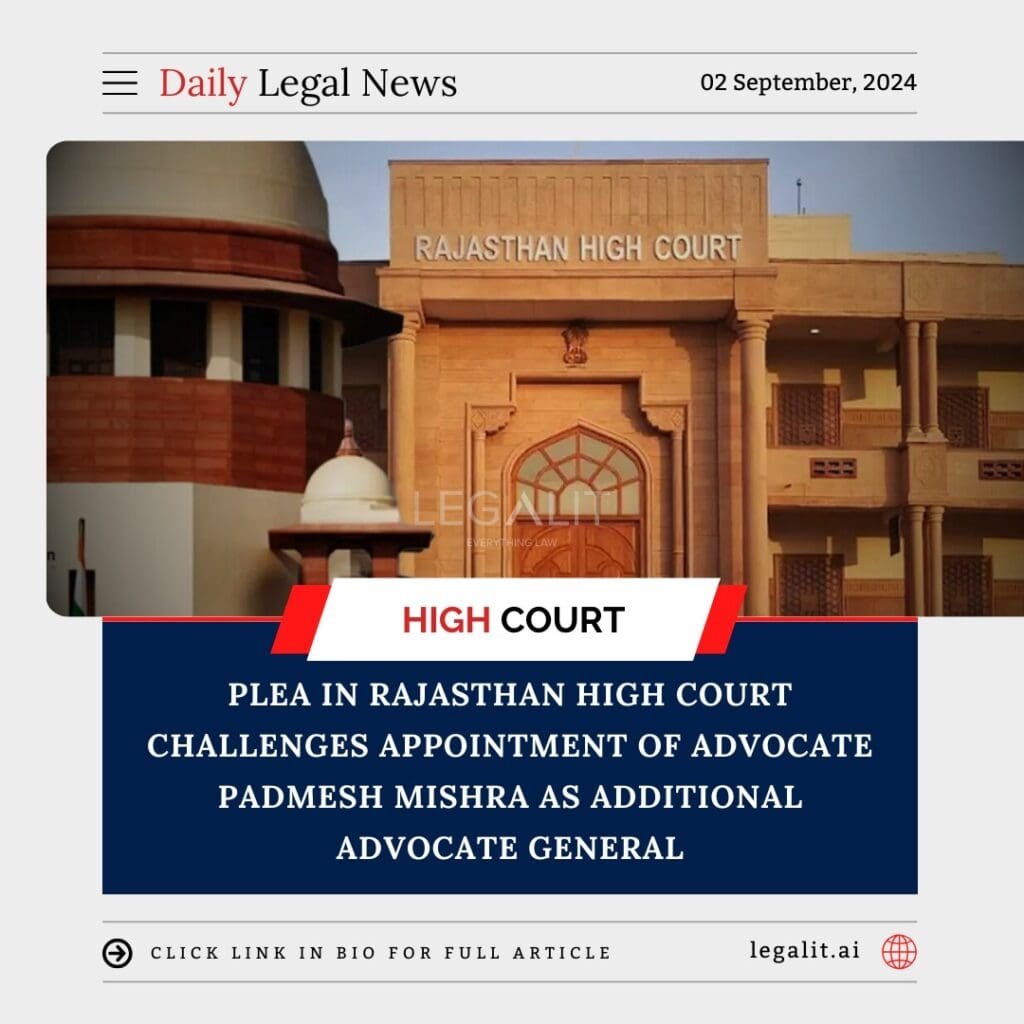
A plea has been filed in the Rajasthan High Court challenging the appointment of Advocate Padmesh Mishra as the Additional Advocate General (AAG) of Rajasthan. The petition raises questions about the legality and propriety of Mishra’s appointment, alleging that it does not adhere to the established norms and criteria for such appointments.
Key Concerns Raised in the Plea:
- Lack of Transparency in the Appointment Process: The petitioner argues that the appointment of Padmesh Mishra as AAG was carried out in a non-transparent manner, without following the due process or criteria typically observed in such high-level legal appointments. The plea contends that there was no public notification or transparent selection process to justify Mishra’s appointment to the post.
- Qualifications and Experience: Another significant concern raised in the plea is regarding Mishra’s qualifications and experience. The petitioner alleges that Mishra does not possess the requisite experience or legal expertise typically required for the position of Additional Advocate General. The plea claims that his appointment might not have been based on merit, thereby undermining the standards expected for such an important legal role.
- Political Influence and Favoritism: The plea suggests that Mishra’s appointment could have been influenced by political considerations rather than professional competence. It argues that such a move might compromise the independence and impartiality of the office of the AAG, which is crucial for maintaining public trust in the legal system.
- Violation of Constitutional Principles: The petitioner asserts that the appointment of Padmesh Mishra may violate constitutional principles, particularly those related to fairness, transparency, and merit-based selection in public appointments. The plea highlights the need for adhering to the rule of law and maintaining high standards in appointing public prosecutors and legal officers.
Court’s Response and Next Steps:
The Rajasthan High Court has acknowledged the receipt of the plea and is expected to hear arguments on the matter soon. The court will likely examine whether the appointment process followed the required legal norms and whether any undue influence or bias was involved. The state government may be asked to provide details on the procedure followed in appointing Mishra as AAG and to clarify his qualifications for the role.
Broader Implications:
This case has the potential to set a precedent regarding the appointment of legal officers in public offices. If the court finds that the appointment was indeed made without adhering to the principles of transparency, fairness, and merit, it could result in stricter guidelines and processes for future appointments of Additional Advocate Generals and other legal officers in the state.
Additionally, the outcome of this plea could have broader implications for ensuring that public offices, particularly those involved in the justice system, are staffed with individuals selected based on merit and without any political bias. The case is being closely watched by legal experts, political analysts, and public servants, as it could reinforce the importance of transparency and accountability in public appointments.